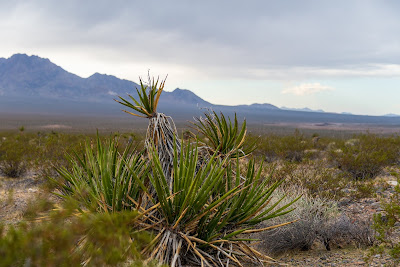The Saga of the Suncatcher
The California Energy Commission (CEC) on 3 October held a hearing to consider whether K Road Solar's planned Calico Solar project would have its permit revoked. At issue is the 2010 decision by the CEC to permit the project even though Tessera Solar LLC -- the project developer at the time -- told the commission it planned to build the project with 26,000 Suncatchers, a solar technology that was owned by Stirling Energy Systems in the infant stages. Well, the CEC permitted the project even though some people argued that the technology was unreliable and inefficient, and that the project would destroy essential desert habitat.
Keep in mind, as the CEC begins to review any application for a permit it should consider the following California regulation:
But BNSF railroad is pissed off (and so are other concerned citizens!). They spent over two years following the Calico solar project plans, concerned that the project would endanger a rail link that crosses the site of the proposed project. It had no choice but to intervene. If Calico solar project were built, the construction activity, vehicle traffic crossing the railroad, potential flooding, and glare from the solar panels could harm the rail operations. And now they found out that they spent two years trying to correct a project that could not be built in the first place. The company that makes the Suncatcher dishes just went bankrupt, and one of the company employees admitted during a court hearing that at the time the CEC handed the company a permit in 2010, there was no way they could build 26,000 Suncatcher dishes.
BNSF railroad is not alone. Many individuals and groups are concerned that the Calico Solar project is being proposed for the wrong place. Seven square miles of ecologically intact desert land next to the Cady Mountains -- home to desert tortoise, bighorn sheep, and rare desert wildflowers -- would be destroyed for the sake of profit. K Road Solar doesn't even know if it can acquire the necessary materials, but they want to build it over 150 miles from Los Angeles. That is 150 miles from where most of the electricity customers live, and where there is ample rooftop space for solar panels, according to a UCLA study.
The CEC is expected to make a determination soon whether or not to revoke the Calico Solar permit based on the allegation that the company misrepresented its ability to build the project. It is time that the CEC wake up and recognize that not all solar companies have the State's best interest in mind. The CEC's job is to protect Californians from frivolous business, and to protect the State's natural resources from from "unneeded" destruction.
Keep in mind, as the CEC begins to review any application for a permit it should consider the following California regulation:
"To prevent any needless commitment of financial resources and regulatory effort prior to a determination of the basic acceptability of and need for the proposed facilities, and the suitability of proposed sites to accommodate the facilities, and to eliminate from further consideration and commitment of resources any site and related facility found to be unsuitable, unneeded, or otherwise unacceptable"Apparently the CEC does not pay much attention to this requirement. Tessera Solar abruptly sold the project after receiving the permit to K Road Solar, primarily because it did not have the money or the wherewithal to build 26,000 Suncatcher dishes. K Road Solar revised the proposal, and is now asking the CEC to expeditiously approve its plans to bulldoze pristine desert for a mixture of technology -- some Suncatcher dishes, but mostly photovoltaic (PV) solar panels. PV panels are the same technology you can put on your rooftop (no need to kill a bunch of desert tortoises).
But BNSF railroad is pissed off (and so are other concerned citizens!). They spent over two years following the Calico solar project plans, concerned that the project would endanger a rail link that crosses the site of the proposed project. It had no choice but to intervene. If Calico solar project were built, the construction activity, vehicle traffic crossing the railroad, potential flooding, and glare from the solar panels could harm the rail operations. And now they found out that they spent two years trying to correct a project that could not be built in the first place. The company that makes the Suncatcher dishes just went bankrupt, and one of the company employees admitted during a court hearing that at the time the CEC handed the company a permit in 2010, there was no way they could build 26,000 Suncatcher dishes.
BNSF railroad is not alone. Many individuals and groups are concerned that the Calico Solar project is being proposed for the wrong place. Seven square miles of ecologically intact desert land next to the Cady Mountains -- home to desert tortoise, bighorn sheep, and rare desert wildflowers -- would be destroyed for the sake of profit. K Road Solar doesn't even know if it can acquire the necessary materials, but they want to build it over 150 miles from Los Angeles. That is 150 miles from where most of the electricity customers live, and where there is ample rooftop space for solar panels, according to a UCLA study.
The CEC is expected to make a determination soon whether or not to revoke the Calico Solar permit based on the allegation that the company misrepresented its ability to build the project. It is time that the CEC wake up and recognize that not all solar companies have the State's best interest in mind. The CEC's job is to protect Californians from frivolous business, and to protect the State's natural resources from from "unneeded" destruction.




Comments
Post a Comment